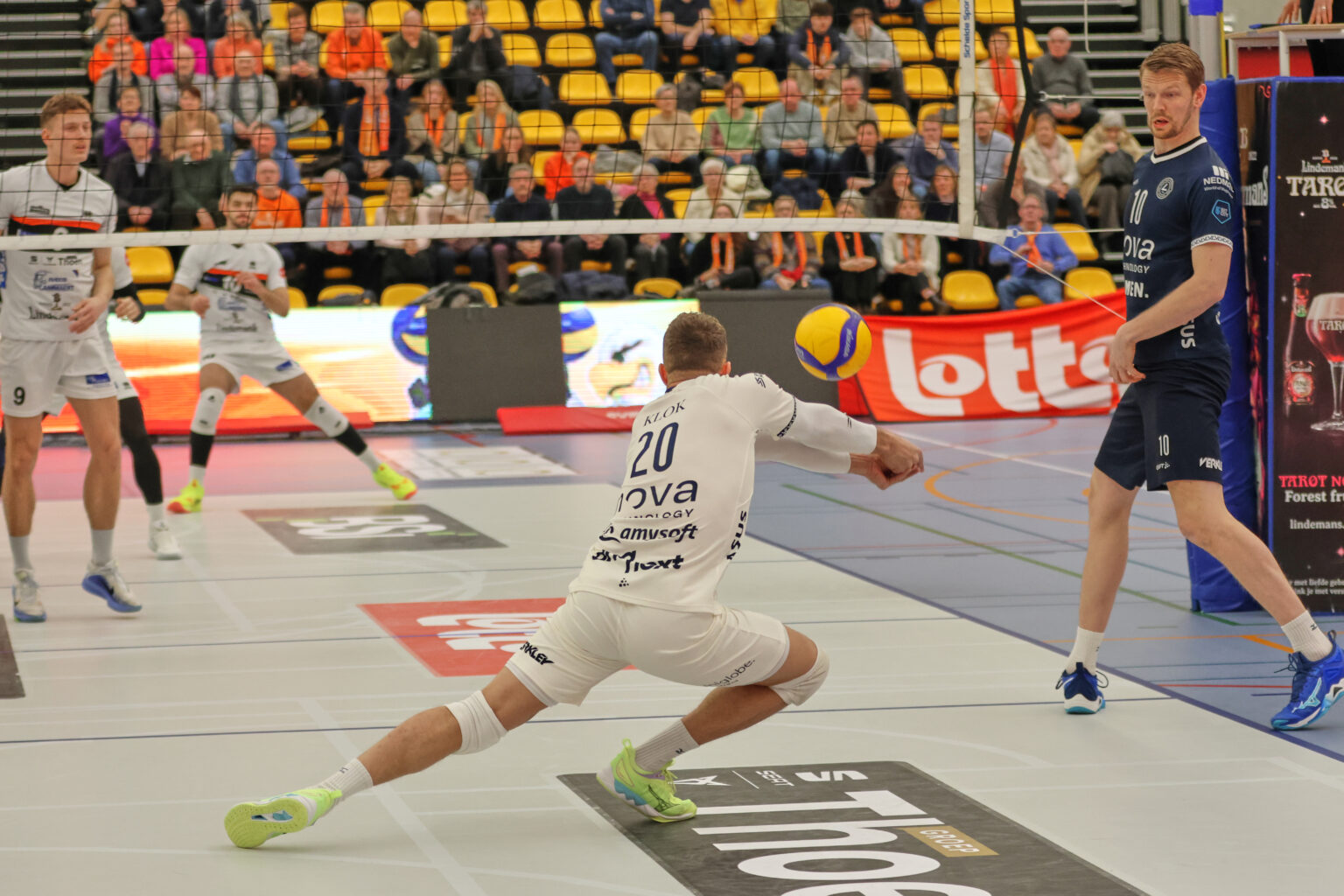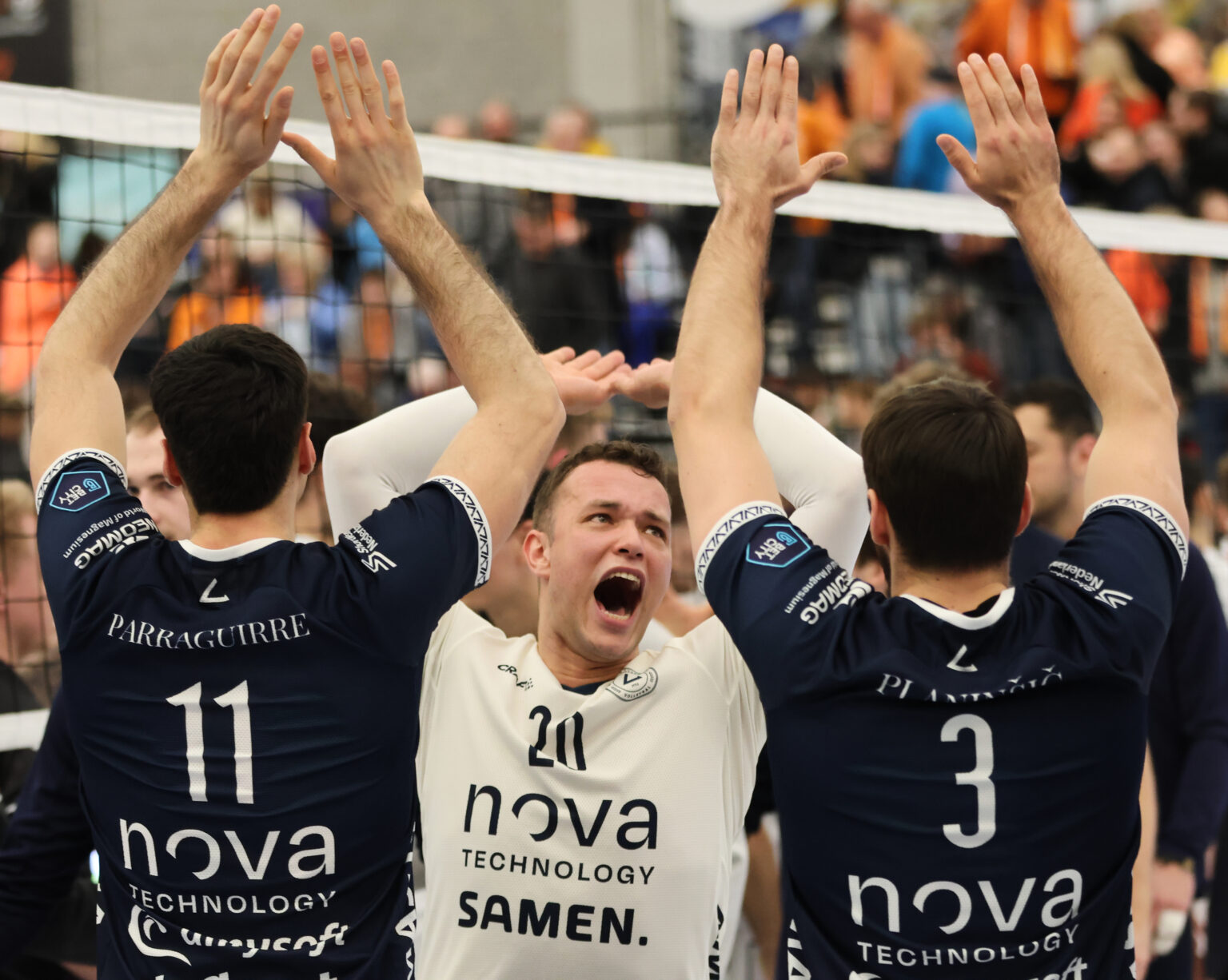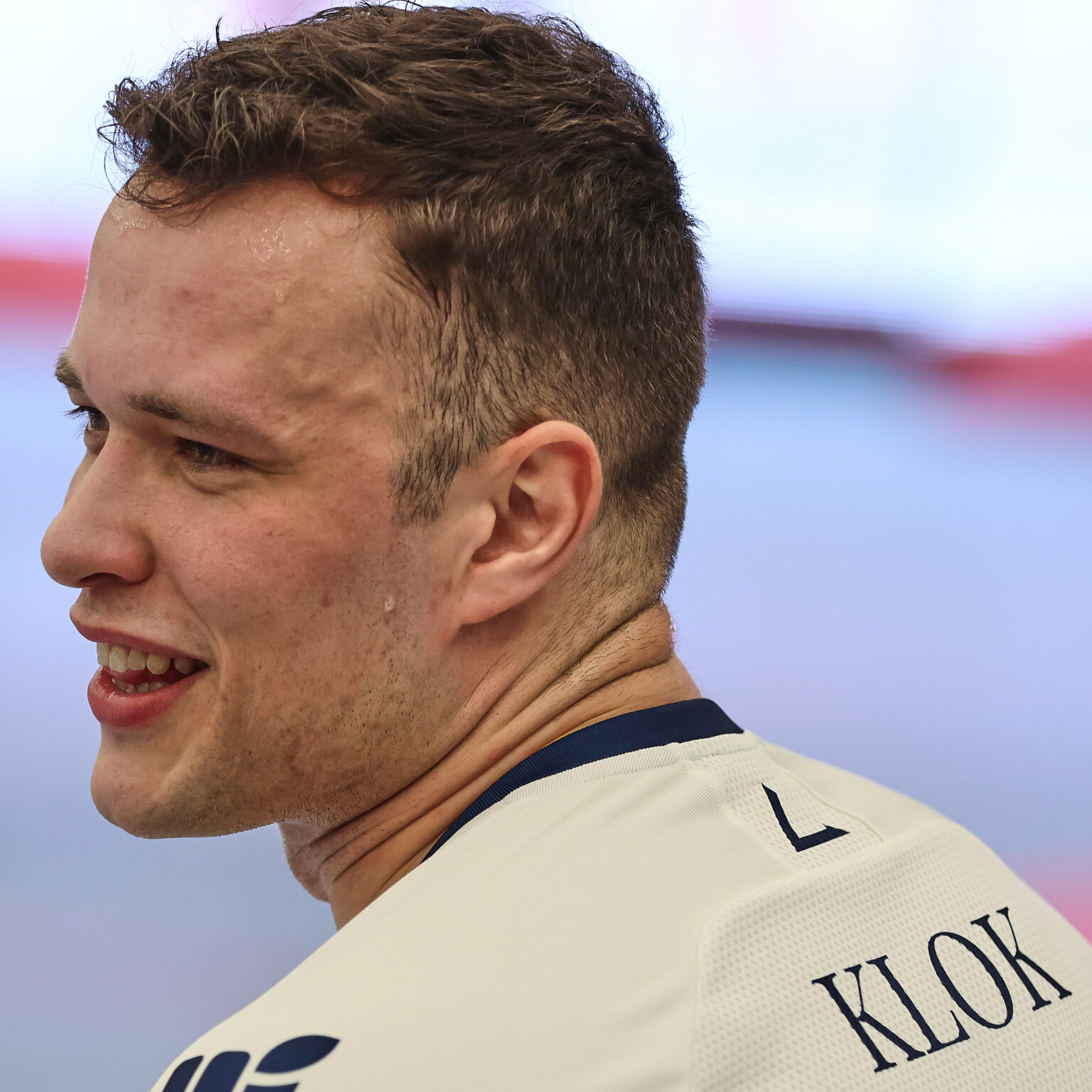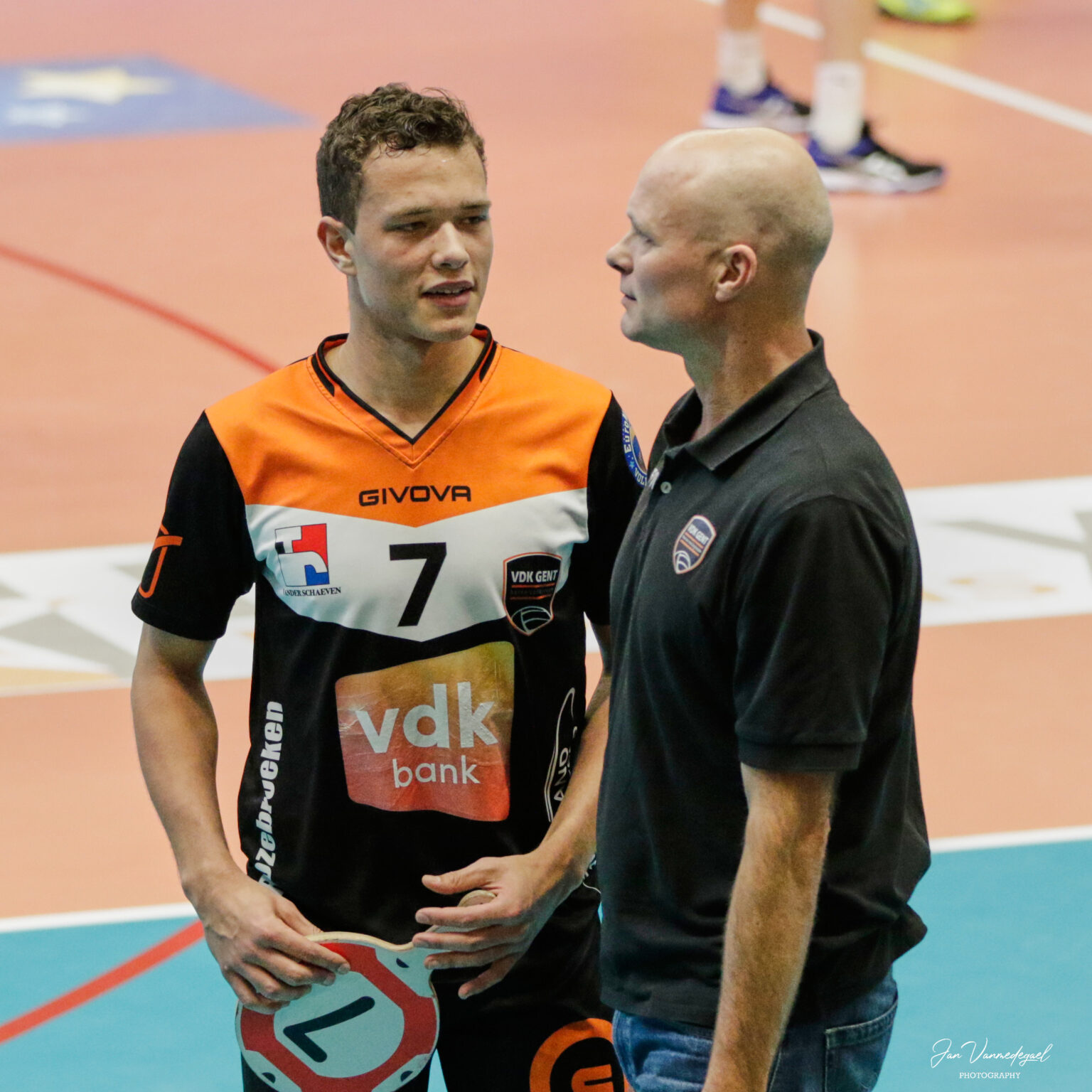Jeffrey Bell ‘Time for volleyball’ and so much more
Six years ago, Jeffrey Klok played volleyball at Caruur Gent, initially with the B-team. But then this all-rounder climbed to the East Flanders club's first team. Back then as a corner attacker, with dad Marko as trainer-coach.
On Sunday, he returns to Belgium to compete - as libero of Nova Tech Lycurgus Groningen - against Knack Roeselare. An absolutely top match as the stakes are high. The duel revolves around the leading position of the BeNe Conference League.
Jeffrey, you are 26 years old and in the meantime you have covered a fine track record as a volleyball player.
Jeffrey Klok: ‘After my time at Caruur Gent, I made the switch to the libero position. I quickly realised that there were more opportunities there to climb to the highest level. I came to Barneveld. Immediately a mental challenge as we had to fight against relegation. Then I moved to Apeldoorn. A top team in the Netherlands, as they hold the record for the number of national titles. It was already another stimulus for me, as I had to fight for a starting place. Now I ended up at Nova Tech Lycurgus and I was already allowed to play with the national team of the Netherlands. It is always a step higher and that is particularly pleasant.’

Indeed, with Groningen, you won almost everything all year. Your club is pretty much the ‘Roeselare’ of Holland and suddenly you are faced with lesser results. Loss against VHL Leuven and two losses in the semi-finals of the Dutch Cup against Doetinchem.
‘Against Aalst we played a fine game in the BeNe Conference, but then things suddenly went wrong against Leuven. They were better. We should have reached the Dutch Cup final after that. Unfortunately, we lost last week against the Orion Stars. Sunday starts again. Just before the clash against Knack Roeselare, our confidence is not affected.
We just had a positive team talk. We are not going to do anything other than what we are capable of doing. We are convinced that our potential has not disappeared. We proved that during the international clashes and the quarter-finals in the European Challenger Cup against Lube Civitanova. We just have to get back to the level we were able to reach - until mid-January, say -. After this players' meeting, we will go full steam ahead against Roeselare. I recently declared that if a Dutch club wins the BeNe Conference, one can safely call it the NeBe Liga. I continue to believe in this motivating quote.’
Eurosped, Set-Up ‘65 from Ootmarsum, Apeldoorn-based club Alterno and - most recently - Topvolley Zwolle have all disappeared from the volleyball stage in the Netherlands. Making higher demands to improve quality on and around volleyball certainly means an upgrade for the sport. But what are the consequences when some clubs can no longer keep up and one club after another has to drop out.
‘In our country, different standards apply. One suggests €150,000 as a licence requirement. It offers a guarantee that you have the sufficient resources to compete in the highest volleyball series. Six clubs in the Netherlands - including our club in Groningen - meet this standard without any problems and are even well above it. For six other clubs it is difficult. That they have to drop out does not feel like a disaster. After all, an available budget translates to the level at sporting level. With sufficient finances, you can organise more training hours, then you can work with a full-time coach, and so on.

You can promote in the Netherlands purely on the basis of budget. You submit a nicely worked-out plan to the association and they then decide whether you can play in the very highest volleyball series. VC Limax got into the premier league that way. The women from Utrecht also climbed up that way. Dalen goes the same way. Insufficient budget means no licence. Among the women, last year (at the second level) a student association had finished first. They did not get promoted. Eight stable clubs in the premier league is an absolute minimum.
Lycurgus finished third during previous years. So solely on the basis of good results, we did not attract new backers. There has to be a - often regionally connected - vision behind it. I suspect Knack will never sponsor a club like Maaseik on the other side of the country. With the arrival of Nova Technology, the sporting opportunities in our region have grown. The club has become a business.’
So a business-like approach is needed for a stable future, in your opinion. Because now, most board members - always in their spare time - have to look for subsidies or sponsors and at the same time face ever-increasing regulations. The willingness to help is usually in relation to a friendship or family members.
‘In the Netherlands, people have been starting to work in a corporate way for a few years now. It used to be all about foundations, like Topvolley Dynamo, for example. Now more and more top clubs have a BV structure. With shares or, as with us, with five hard-working people in the office and a few trainees constantly working on the club. But make no mistake, Groningen also relies on volunteers. Volleyball has no revenue model. Running a club is often based on the goodwill of aging board members and the kindness of loyal members. It remains difficult to end a volleyball year with a profit.’
You are an incredible jack-of-all-trades. You also enjoy fame as host of the talk show ‘Time for volleyball’. How do you combine all that?
‘Three years ago, I started the talk show ‘Tijd voor volleybal’ in the Netherlands. I thought volleyball should be given a platform that this great sport deserves. However, it took a lot of time and there was no growth in the number of viewers and listeners. Every time, I had to prepare the next broadcast for a fortnight. That really became too much. So we switched to a podcast with some of the staff, like your fantastic ‘Two Man Block’. But then split up with separate coverage for women and men. That way we reached the two target groups more smoothly, who apparently followed the competition less with the opposite sex.
And we still have big plans. We broadcast the draw for the cup competition during a great show and had a lot of viewers. We expanded our social media channels and we are even going to film at the clubs. Volleyball should be on TV, then we will reach a much larger audience. At the NOS and in Belgium they are faced with too high production costs. So we are organizing something ourselves with our own people and our own material. With a recent summary we reached 350,000 sports fans. We will broadcast the BeNe Conference match between Orion Stars Doetinchem and Lindemans Aalst live on Sunday – on behalf of the Dutch League – with five fixed cameras, a net camera and with 'slow motion' images. Supported by commentators, with interviews before and after the meeting. In the future we will do even more with our reports and we can even offer them to the regional television channels. “

You waited a long time to make your sexual orientation public. Homosexuality still has to cross a threshold of acceptance. How did you approach that?
I only came out during my time at Dynamo Apeldoorn. I even waited until after signing my contract to make it public. I struggled with an internal fear, because volleyball has a bit of a macho culture. However, that concern was unnecessary. Volleyball is much more civilized than, for example, football. They get more things thrown at them there. On the other hand, I have had a lot of great reactions. The concern was completely unnecessary.”
You undoubtedly inherited all those busy activities through the many wanderings with Marko Klok in particular: your father, international, ex-player at Maaseik, with Anders Kristiansson as trainer-coach.

“I think I learned a lot on a social level, especially because of all those contacts that I had to renew constantly, because my dad always went to work in a different country as a professional player or coach. I was in Belgium a lot, of course, but also in Italy, Cyprus, France, you name it. It's fantastic that I can do so much now and experience so much. I notice that I like having a lot of people around me. I give training twice a week at the fourth level in the Dutch competition. At Veracles, a student association from Groningen.
The funny thing is that – because of all those combinations of activities – I am in contact with many of the same people, but then in a completely different role. Sometimes as an opponent, but also often as a television producer during an interview or something. At Orion there is also a media manager, he is my competitor on the field and yet we often work together off the field. Isn't that fun?”
Text: Walter Vereeck
Photos: archive and Jan Vanmedegael